Introduction: Understanding Knee Replacement Surgery
Understanding Knee Replacement Surgery: Knee pain and discomfort can significantly impact one’s quality of life, limiting mobility and hindering daily activities. For many individuals suffering from severe knee conditions, knee replacement surgery becomes a viable solution to regain function and alleviate pain.
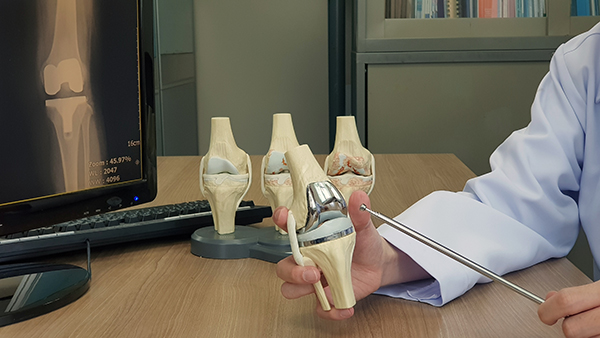
In this comprehensive guide, we will delve into the intricacies of knee replacement surgery, exploring the procedure, benefits, recovery, and what patients can expect throughout this transformative journey. We can discuss more about “Understanding Knee Replacement Surgery” in this article.
- Introduction: Understanding Knee Replacement Surgery
- **1. Introduction to Knee Replacement Surgery
- **2. When is Knee Replacement Surgery Considered?
- **3. Types of Knee Replacement Surgery
- **4. The Surgical Process
- **5. Postoperative Care and Recovery
- **6. Benefits of Knee Replacement Surgery
- **7. Potential Risks and Complications
- **8. Who is an Ideal Candidate for Knee Replacement Surgery?
- **9. Dr. Gautam Gupta’s Expertise in Knee Replacement Surgery
- **10. Conclusion
- Knee Replacement Surgery By Doctor Gautam Gupta
**1. Introduction to Knee Replacement Surgery
Knee replacement surgery, also known as knee arthroplasty, is a medical procedure designed to replace damaged or worn-out knee joints with artificial implants. The primary goal is to relieve pain, restore function, and improve the overall quality of life for individuals dealing with chronic knee issues. We can discuss little more about “Understanding Knee Replacement Surgery” in this article.
Read More:
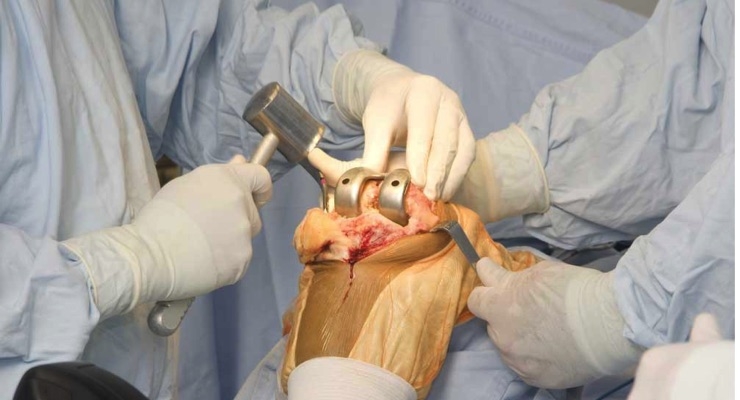
**2. When is Knee Replacement Surgery Considered?
Knee replacement surgery is typically recommended for individuals experiencing:
- Osteoarthritis: The most common reason for knee replacement, osteoarthritis involves the breakdown of the joint cartilage, leading to pain and stiffness.
- Rheumatoid Arthritis: An autoimmune condition that causes inflammation in the joints, resulting in pain, swelling, and deformity.
- Post-Traumatic Arthritis: Arthritis that develops after a severe knee injury, such as a fracture or ligament tear.
- Other Conditions: Knee replacement may also be considered for certain cases of gout, knee deformities, and failed previous knee surgeries.

**3. Types of Knee Replacement Surgery
There are different types of knee replacement surgery, and the choice depends on the extent of damage and the patient’s specific condition. The main types include:
- Total Knee Replacement (TKR): In this procedure, both sides of the knee joint are replaced with artificial components.
- Partial Knee Replacement: Involves replacing only one part of the knee joint, usually recommended when damage is limited to a specific compartment.
- Kneecap Replacement (Patellofemoral Arthroplasty): Focuses on replacing the undersurface of the kneecap.

**4. The Surgical Process
Preoperative Preparation:
Before the surgery, a comprehensive evaluation is conducted, including physical exams, imaging tests, and discussions about medical history. Patients are often advised to cease certain medications, such as blood thinners, in the days leading up to the surgery. We can discuss few more about “Understanding Knee Replacement Surgery” in this article.
Anesthesia:
Knee replacement surgery is typically performed under general anesthesia or spinal anesthesia. The choice depends on various factors, including the patient’s health and preferences.
Incision:
The surgeon makes an incision over the knee to access the joint. Modern techniques often involve minimally invasive approaches, leading to smaller incisions and potentially faster recovery.
Reshaping the Bones:
The damaged ends of the thigh and shin bones are carefully removed, and the remaining surfaces are shaped to accommodate the artificial implants.
Implant Placement:
The artificial components, usually made of metal and plastic, are then attached to the reshaped bones. These implants mimic the function of a natural knee joint.
Closure:
Once the implants are securely in place, the incision is closed, and the knee is bandaged.

**5. Postoperative Care and Recovery
Hospital Stay:
Patients typically stay in the hospital for a few days following knee replacement surgery. During this time, pain is managed with medications, and physical therapy is initiated to aid in mobility.
Physical Therapy:
Rehabilitation is a crucial aspect of knee replacement recovery. Physical therapy helps strengthen the muscles around the knee, improve flexibility, and restore overall joint function. We can discuss some more about “Understanding Knee Replacement Surgery” in this article.
Home Recovery:
Upon discharge, patients are provided with instructions for at-home care. This includes exercises, medication management, and guidelines for activities of daily living.
Follow-Up Appointments:
Regular follow-up appointments with the orthopedic surgeon are scheduled to monitor progress, address any concerns, and adjust the rehabilitation plan as needed.
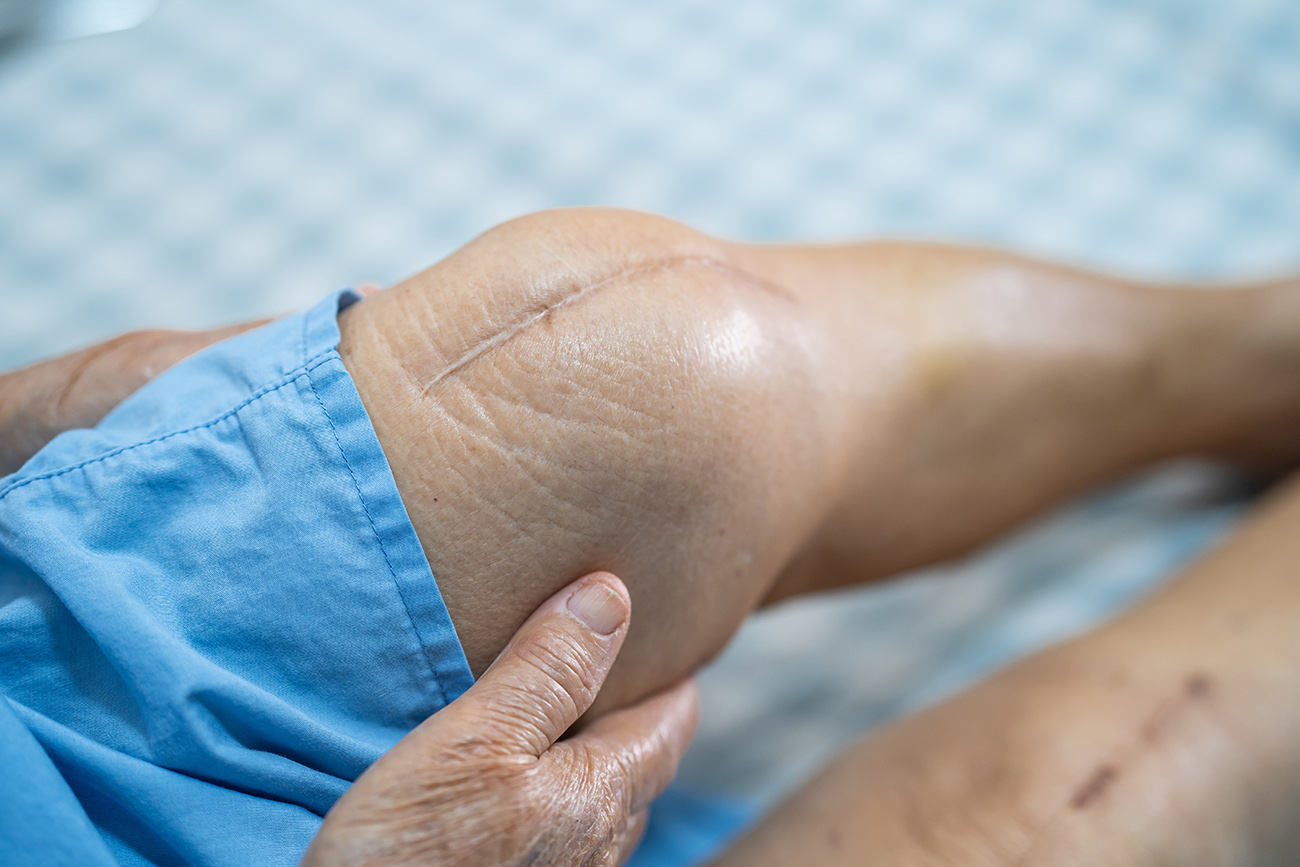
**6. Benefits of Knee Replacement Surgery
- Pain Relief: One of the primary benefits is the significant reduction or elimination of chronic knee pain.
- Improved Mobility: Patients often experience improved range of motion and enhanced joint function, allowing for increased activity levels.
- Enhanced Quality of Life: The alleviation of pain and improvement in mobility contribute to an overall better quality of life.
- Long-Term Durability: Modern knee implants are designed for durability, providing long-lasting relief for many years.
**7. Potential Risks and Complications
While knee replacement surgery is generally considered safe and effective, it, like any surgery, comes with potential risks. These may include:
- Infection: Despite stringent measures to prevent infection, it can still occur postoperatively.
- Blood Clots: There is a risk of blood clot formation, especially in the lower extremities.
- Implant Issues: In rare cases, issues such as implant wear or dislocation may arise.
- Nerve or Blood Vessel Damage: During surgery, there is a minimal risk of damaging nearby nerves or blood vessels.
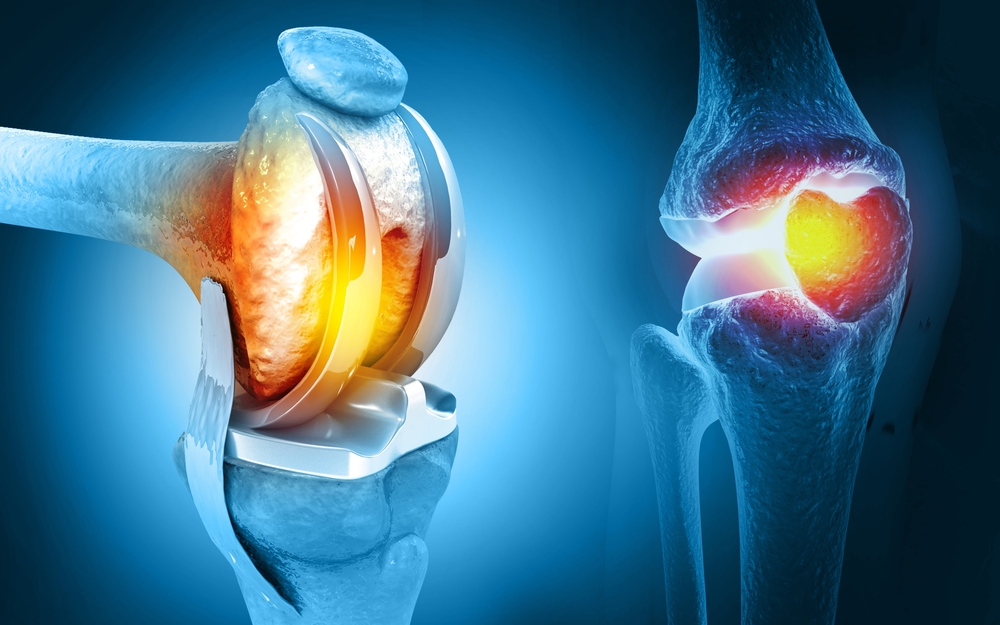
**8. Who is an Ideal Candidate for Knee Replacement Surgery?
Ideal candidates for knee replacement surgery are those who have:
- Persistent Knee Pain: Pain that doesn’t respond to conservative treatments such as medications and physical therapy.
- Limitations in Daily Activities: Difficulty in performing routine activities like walking, climbing stairs, or getting up from a seated position.
- No Improvement with Other Treatments: Lack of improvement with alternative treatments for an extended period.
**9. Dr. Gautam Gupta’s Expertise in Knee Replacement Surgery
Dr. Gautam Gupta, a seasoned orthopedic surgeon with over a decade of experience, specializes in knee replacement surgery. His expertise lies not only in performing the surgical procedure but also in providing comprehensive preoperative and postoperative care. We can see more about “Understanding Knee Replacement Surgery” in this article.
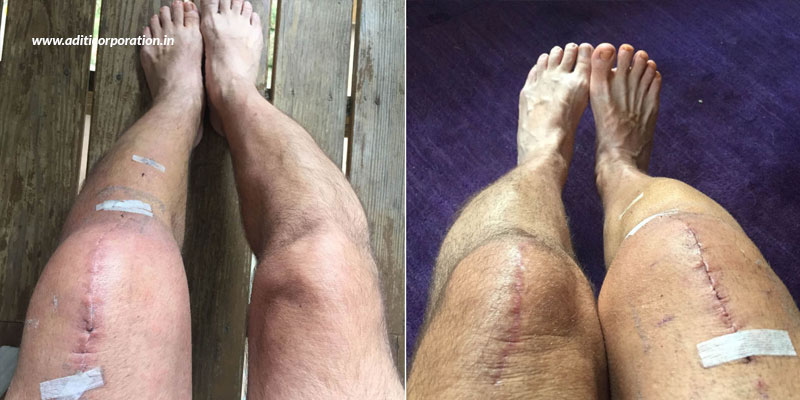
**10. Conclusion
Knee replacement surgery has become a transformative solution for individuals dealing with debilitating knee conditions. Understanding the procedure, its benefits, and the recovery process is essential for those considering or undergoing this surgery. As with any medical decision, it is crucial to consult with a qualified orthopedic surgeon like Dr. Gautam Gupta, who can assess individual needs and guide patients through a personalized and effective treatment plan.
In conclusion, knee replacement surgery opens the door to improved mobility, reduced pain, and a better quality of life for many individuals. Dr. Gautam Gupta’s commitment to excellence in orthopedic care positions him as a trusted partner for those embarking on the journey to regain control over their knee health.
Knee Replacement Surgery By Doctor Gautam Gupta
Dr. Gautam Gupta: Your Trusted Orthopedic Partner
Meet Dr. Gautam Gupta, a seasoned orthopedic surgeon with over 14 years of expertise. Specializing in knee and hip replacements, ligament injuries, sports trauma, and fractures, Dr. Gupta blends cutting-edge techniques with personalized care. With international fellowships in the Netherlands and Germany, he brings a global perspective to his practice. Currently, a Consultant Orthopedic Surgeon in Kolkata, Dr. Gupta ensures every patient receives compassionate and top-notch orthopedic care. Trust Dr. Gautam Gupta for a journey towards better orthopedic health and optimal outcomes.
Bone Doctor Gautam Powered By Argusdna
Dr. Gautam Gupta[M.S. (ORTHO)]
Fellowship Shoulder & Knee Surgery (Germany & Netherland) Ex-Assistant Professor (W.B.M.E.S)
Sports Injury Consultant (Indian Football Association, W.B., Chapt) Reg. No. 63422 (WBMC),
Phone No. : +91 62917 71106
Email Id : contact@bonedoctorgautam.com
Bone And Joint Clinic – Best Joint Replacement Clinic | Best Orthopedic Clinic in Kolkata
:591, Tagore Park Rd, Tagore Park, Kasba, Kolkata, West Bengal 700039
Link:https://g.page/r/CbQzKPsoxiZVEBM/
Dr Gautam Gupta – Best Knee Replacement Surgeon | Best Hip Replacement Surgeon | Best Sports Injury Surgeon in Kolkata: 591 Laskar Hat Road Near Tagore Park Auto Stand, Kolkata, West Bengal 700039 Link: https://g.page/r/Cc2iL0CE1P6tEBM/






